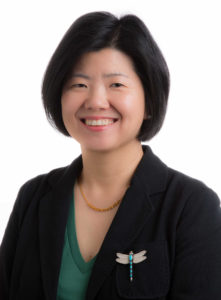Dr. Eun-Young Mun named as UNT System Regents Professor
May 29, 2024 • News

Dr. Eun-Young Mun of The University of North Texas Health Science Center College of Public Health is nationally known for an extensive career in serving others through research, academics, scholarship, community service and contributions to the public good.
In recognition of her work and its impact, the UNT System Board of Regents has awarded Dr. Mun with a rare academic distinction as Regents Professor. She is the second CPH professor to receive this honor in the school’s 25-year history.
Dr. Mun, who joined HSC in 2018, is a tenured professor and interim co-chair for the CPH department of population and community health.
As a behavioral health researcher seeking solutions to critical public health issues, Dr. Mun focuses on alcohol and substance misuse, analyzing big data sets with state-of-the-art analytic techniques to guide health decisions and implementation strategies for interventions. Her research has been widely recognized for its innovative approaches and significant impact on public health policy and practice.
Dr. Mun has led HSC’s Project INTEGRATE, significantly impacting how brief alcohol interventions are conducted and evaluated. She and her team of investigators have also provided insights into why adolescents and young adults, including college students, misuse alcohol and how to help them drink less and experience fewer consequences. In addition, Project INTEGRATE has been a trailblazer in the era of open science and data science. The project was recognized as a finalist team by the inaugural NIH DATAWorks! Prize Challenge in 2022.
Since 2010, Dr. Mun’s research has been supported by the National Institutes of Health; she has received funding from other federal, state and local sources as well. During her career, Dr. Mun has been awarded 30 grants as principal investigator or as part of teams, totaling more than $53 million in total costs to help serve higher-education institutions’ research and education missions. She has leveraged grant-funded projects to nurture and mentor the next generation of clinical investigators and practitioners, from predoctoral trainees to early-career faculty members. Dr. Mun has worked closely with CPH students and postdocs to help prepare them to become public health leaders active in academia and industry.
“Dr. Mun’s work is well aligned with the mission, vision and strategic plan of the College of Public Health – IMPACT 2030: Commitment to Community. Through her research and scholarly initiatives that are both responsive and relevant to the needs of communities, Dr. Mun is helping to build transformative improvements in public health, both on a local and national scale,” said Dr. Shafik Dharamsi, CPH dean.
Dr. Mun has authored or co-authored over 100 peer-reviewed journal articles and chapters and three advanced textbooks and has served on many national scientific grant review committees. She has been an invited guest speaker, presenter and panelist for NIH-led public events, and has served as a faculty guest for the Rutgers Robert Wood Johnson Medical School’s department of psychiatry and the University of Kentucky’s college of public health.
She is a Fellow of the Association for Psychological Science, a globally recognized organization committed to the advancement of scientific psychology across disciplinary and geographic borders. The distinction of Fellow is awarded to APS members who have made outstanding contributions to the science of psychology.
Dr. Mun has served on many HSC committees, including the task force on graduate education and research; the Division of Research and Innovation’s research advisory committee; CPH PhD admissions and curriculum committees and more.
“Dr. Mun is an exceptional researcher, teacher and scholar, and we are very proud to see her recognized as Regents Professor,” Dr. Dharamsi said. “Her work has made a tremendous impact on the field of public health, and we look forward to seeing her continued contributions in the years to come.”


Social media